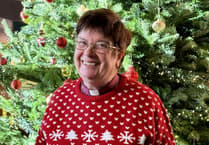“How are you?” “Very well thanks – and you?” The exchange may be just a passing courtesy, or – given time and trust – it may open a conversation about health, relationships, journeys, plans and more. Either way, the greeting recognises the importance of ‘wellbeing’ to ourselves and to others.
There’s no shortage of suggestions on how to find personal wellbeing. Smartphones offer dozens of apps: from sleep trackers to step counters, meal plans to meditation guides. Those who prefer books can find an ever-growing range of ‘mind, body and spirit’ titles. Not to forget wisdom passed down in proverbs. The late Dr Michael Mosley based an episode of his BBC podcast on the saying ‘an apple a day keeps the doctor away’, backing it with scientific explanation involving chemical compounds and gut bacteria. That’s good news in an autumn where local apples have been abundant.
The apple harvest illustrates social and environmental aspects of wellbeing which matter as much as individual habits. Soil health and climate affect the trees, whether in Devon or overseas. Local gatherings celebrate apples, including the Bere Apple Fest, organised by volunteers of the Tavy and Tamar Apple Group, which manages Bere Ferrers Orchard as a community asset. The festival, marking its 25th anniversary, was packed with locals and visitors despite a rainy start. Fresh apple juice was on sale, pressed on the spot using fruit people shared from their gardens. With information displays, entertainment and children’s activities, it exemplified people getting together for enjoyment which enhanced wellbeing.
Transition Tavistock had a stall at the recent Wellbeing Fair in Tavistock’s Butchers Hall, organised by Tavistock Health and Wellbeing Alliance. As we chatted about our future plans and gave out resources including our 2025 Walkable Tavistock Map, we made the point that looking after the environment helps human wellbeing. That’s not just in the future – important though it is to tackle climate change – but in the present. For example, research on Wildlife Trusts’ volunteer programmes demonstrated improved physical, emotional and mental wellbeing, with savings to the NHS.
Personal choices and community action can help wellbeing but are so often constrained or helped by the bigger decisions made by business and governments. Do they know their impact on the wellbeing of people and planet? There’s information out there. The latest State of Nature Report found that “The UK, like most other countries worldwide, has seen significant loss of its plants, animals and fungi”. The Office for National Statistics unfortunately “downscaled wellbeing statistics” this year to concentrate on other priorities.
Every month news programmes pore over tiny changes in Gross Domestic Product, demanding faster growth. Yet it’s an economic measure that ignores much that matters, including most volunteering. A village dependent on plastic-packed apples arriving on competing supermarket vans scores more for GDP than if a community run orchard grows and shares fruit suited to the local context. Just think: what might change if an equal focus was given to tracking the wellbeing of people and nature?
.jpeg?width=752&height=500&crop=752:500)




Comments
This article has no comments yet. Be the first to leave a comment.